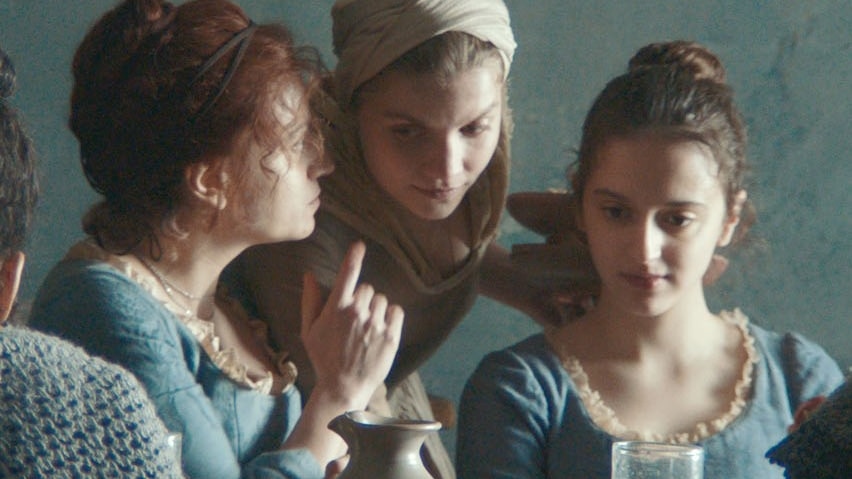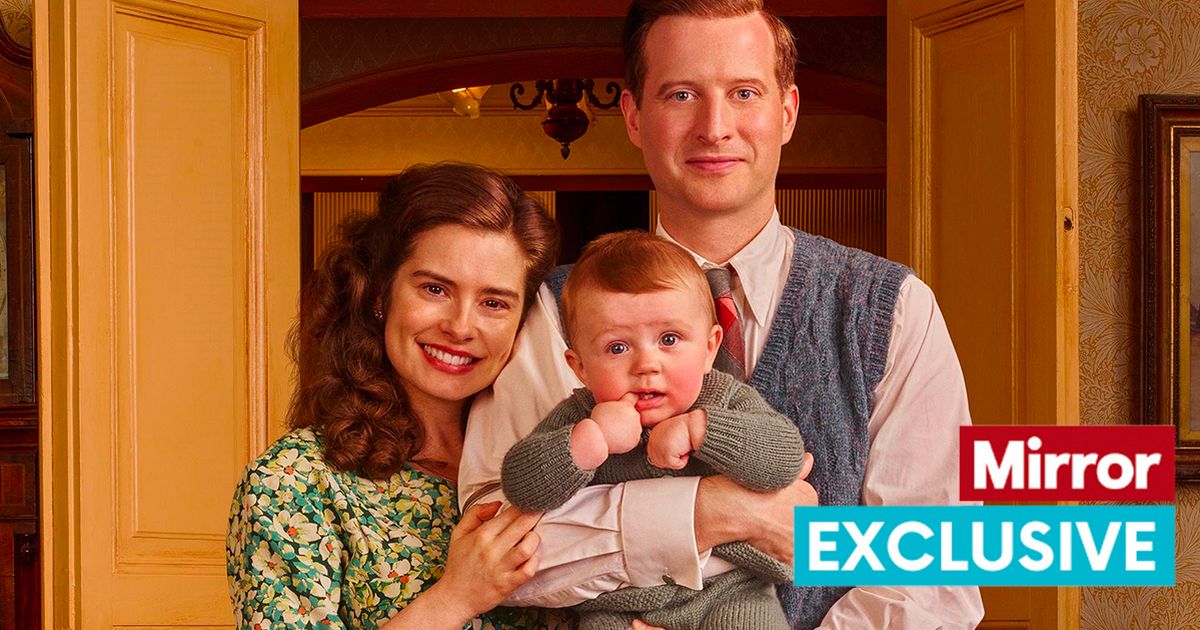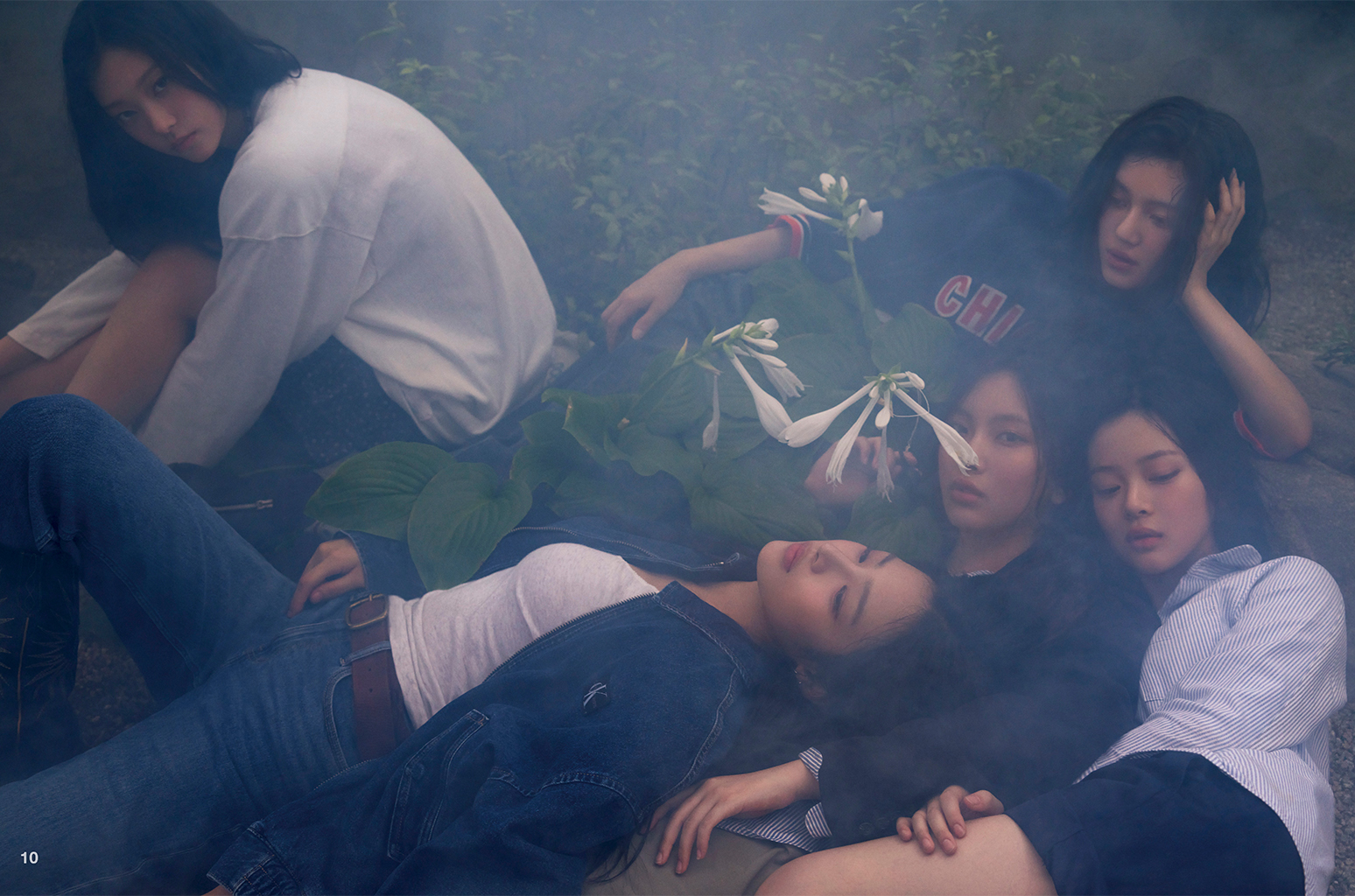When American musician Billie Eilish and her producer brother Finneas O’Connell first heard the rapid staccato of a pedestrian crossing signal while visiting Sydney, they were so blown away by the musical potential of this seemingly mundane sound it wound up as the beat to her hit single Bad Guys. Italian actor and singer-songwriter Margherita Vicario also transforms humdrum background noise into the fantastical in her debut directorial feature, Gloria! The peppy, toe-tapping film flourishes with a joyous fusion of pop and Vivaldi, and it opens this year’s Italian Film Festival in states across Australia. Set in Venice at the turn of the 19th century, it thrusts us into the stuffy confines of Sant’Ignazio, a religious institution housing orphaned young women and training them to be musicians. While the halls that host guests are resplendent, the girls’ quarters are more like prison cells. But even within their ranks, not all are equal. Teresa, portrayed by The Taste of Things actor Galatéa Bellugi, is a Cinderella figure. She has an illegitimate son — who was taken from her — and isn’t deemed reputable enough by Perlina (Paolo Rossi), a mean-spirited priest with his own secrets to keep, to join the other girls in their lessons. Instead, she must tidy up for everyone. During one such monotonous courtyard sweep, Teresa suddenly becomes aware of every brushstroke, sneeze and bucket splash, coalescing into a percussive musical number of sorts, until her reverie is rudely interrupted by a slap about the head. “The movie is about her imagination,” Vicario says. “At the beginning, it’s all in her mind, and then it’s like the arc of a songwriter. Her imagination is her escape from reality.” That escape opens further when a beautiful piano is donated to the orphanage. Perlina banishes it to the basement in a moral paroxysm, but when Teresa is forced to clean out the basement in preparation for a Papal visit — at which they must perform a concert for the cruel governor (Natalino Balasso) — she stumbles upon the instrument. Even though she has never been trained, Teresa wills incredible music into being, as if by magic, bringing all the other girls to her in the middle of the night. With Perlina distracted by the impending visit, the girls gather together around the piano, composing something just for them as the seeds of a rousing rebellion are sown. One girl even invokes the spirit of the French Revolution. “Through the piano, Teresa’s imagination goes outside her,” Vicario says. “And like every singer-songwriter I know, the biggest dream is to have your music played by an orchestra.” ‘Reach for the feeling’ Vicario may have two hit albums to her name, but she comes from a long line of filmmakers and went to theatre school, so it seems inevitable these paths would cross professionally. “I wanted to do like this musical movie that wasn’t a musical,” she says. “In Italy, they don’t really like it if someone starts singing. They’re quite sceptical.” The handy thing about historical fiction, Vicario suggests, is that you can dispense with a great deal of scepticism surprisingly easily — with a little help from a great team, including cinematographer Gianluca Palma, production designers Susanna Abenavoli and Luca Servino, and Mary Montalto’s costumes, which are both beautiful and believably worn. “My biggest talent is to talk, talk and talk, telling you what I’m thinking, but then I can do nothing,” Vicario laughs. “To have this balance between the contemporary pop and the historical, the aesthetic had to be perfect, and by perfect, I mean dusty and dirty. Of course, it’s like a fable, a tableau.” Casting Bellugi was an artistic decision for Vicario, too: “I did a lot of auditioning, and she has these cool eyes, as if she comes from a Vermeer painting.” Other than her music videos, Vicario had never worked as a director. But she took the complicated musical scenes with Teresa in her stride. “I felt really comfortable going to all the actors and saying, ‘Trust me, I know what I’m doing’ because it was all in my head,” she says. “They were the simple scenes for me. Whereas the ones with dialogue were much more difficult to find the rhythm.” And she drew on elements of her story for Teresa’s journey, too. “It’s a little bit autobiographical, because I cannot read or write music,” she reveals. And yet, Vicario composed the film’s magnificent score alongside fellow musician Davide Pavanello, who also can’t read or write sheet music. “In pop music, there’s like a grammar where, if you work together, you have to say, ‘The chorus is not working’, or ‘We need the hook’,” Vicario says. “But in music for cinema, you don’t need that grammar. Davide and I were like two children of six or seven years old, building whatever they want. You just need to reach the feeling.” Climb every mountain Gloria!’s empowering story of young women grasping their moment also contains a sobering nod towards the many whose music was obscured throughout history. “In this case, the villain is the one who holds all the power,” Vicario says. “I’m sorry to say that it’s very normal in that century, and not that far from today, at least in Italy, for that power to be held by the church and the nobility. They had a lot to do with the conditions of women.” Vicario is thrilled she got through the endurance test of her first directing job. “The six weeks of shooting were the most difficult of my life and I’m not the same person anymore,” she says. “It was like climbing a big mountain.” Well worth it, though. “I’m so excited to come to Australia. I haven’t travelled that much in my life, because in summertime I’m always touring or shooting, so it’s wonderful to share these women and their music.” The Italian Film Festival begins on the 18th of September in Sydney, with screenings also happening across September and October in Canberra, Brisbane, Melbourne, Byron Bay and Ballina, Adelaide and Perth.
Subscribe
Login
0 Comments





